Definition
Mindset – mental attitude which defines how one interprets and responds to situations (Dweck, 2012).
Previously people believed that intelligence was fixed and that it could only be measured by way of an IQ test. This theory claimed that no matter how one learned, the intelligence stayed the same.
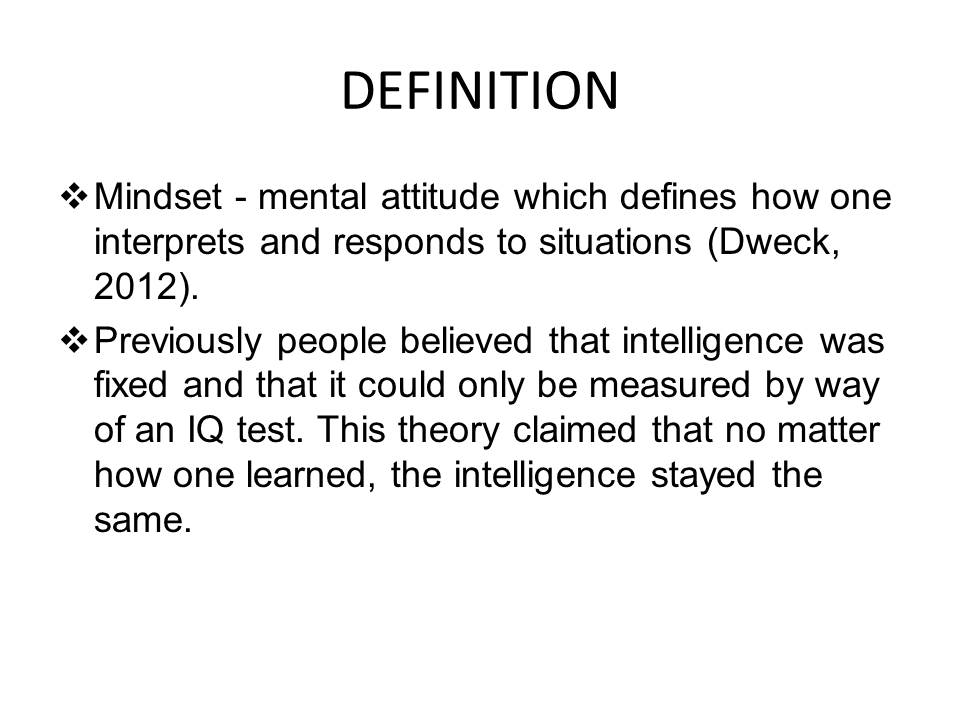
Present Theory
Advances the fact that what one is born with does not matter; what matters is their mindset.
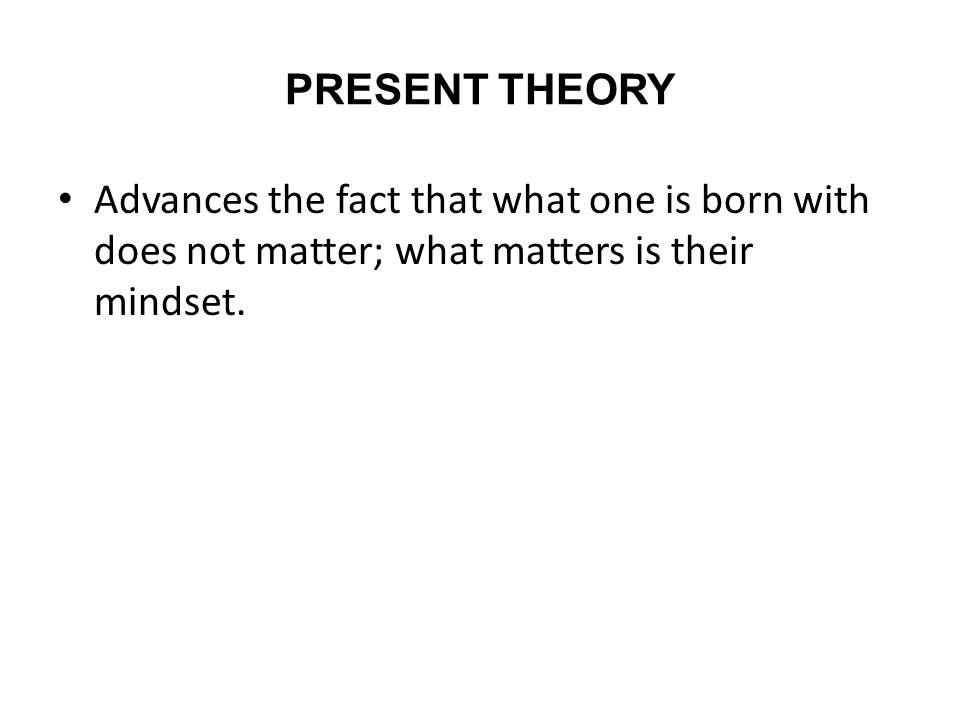
Types of Mindset
Mindset can be either positive or negative:
- Negative mindset is also referred to as fixed mindset.
- A positive mindset is, on the other hand, referred to as growth mindset. This is because it envisions growth.
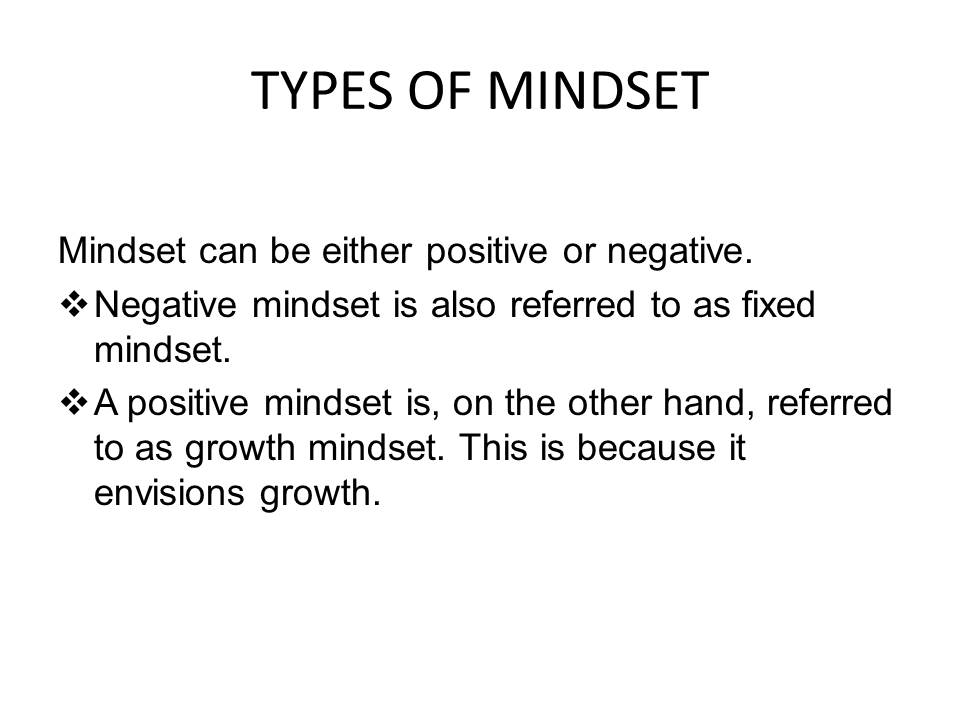
Fixed Mindset
Fixed minded people tend to avoid challenges. They do this due to fear of failure since they feel this may negatively impact their self-image.
Fixed mindset people quickly give up and view effort as fruitless.
Ignoring useful negative feedback is what also characterizes people with a fixed mindset. In most cases, they take such criticism as an insult. They fail to realize that such feedback points to their capabilities and not self-esteem.
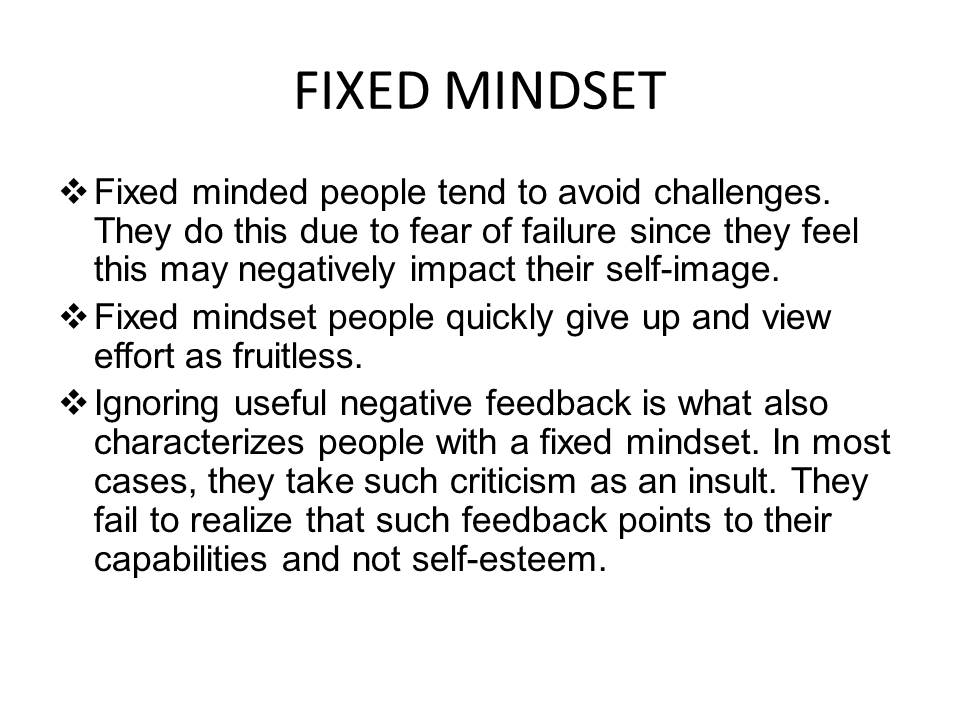
Growth Mindset
Growth mindset has several advantages for students and the general public. People with growth mindset desire to learn. They believe that intelligence is progressive and not static (Tough, 2012).
Embracing challenges is the hallmark of growth mindset. This is because people with positive mindset know that out of any challenge they will come out stronger.
Setbacks do not hold back people with growth mindset. Thus, both internal, as well as external setbacks, do not discourage them.
Effort is seen as a roadmap to mastery.
Criticism and negative feedback for people with growth mindset are taken as principle sources of growth and mastery of skills. Students who have a growth mindset know that they can learn from constructive criticism and negative feedback (Duckworth, 2016).
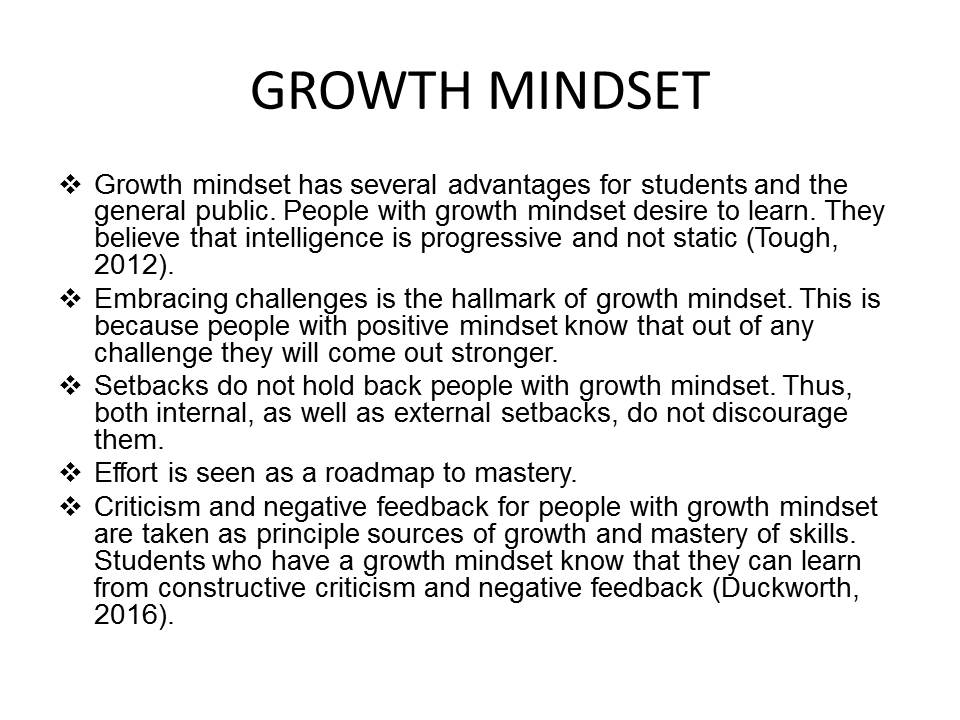
Application to Students
Students should know that their mindset is the greatest determinant of their success.
No student should feel that they are slow or dumb; anybody can learn well. Those who feel otherwise should instead find out what they did not understand and probe further for useful strategies (Ricci, 2013)
Students should be open to criticism and negative feedback.
Students should know that effort is vital for any success. Judgment on one’s ability should not be taken as it is; effort and persistence can bring the whole difference.
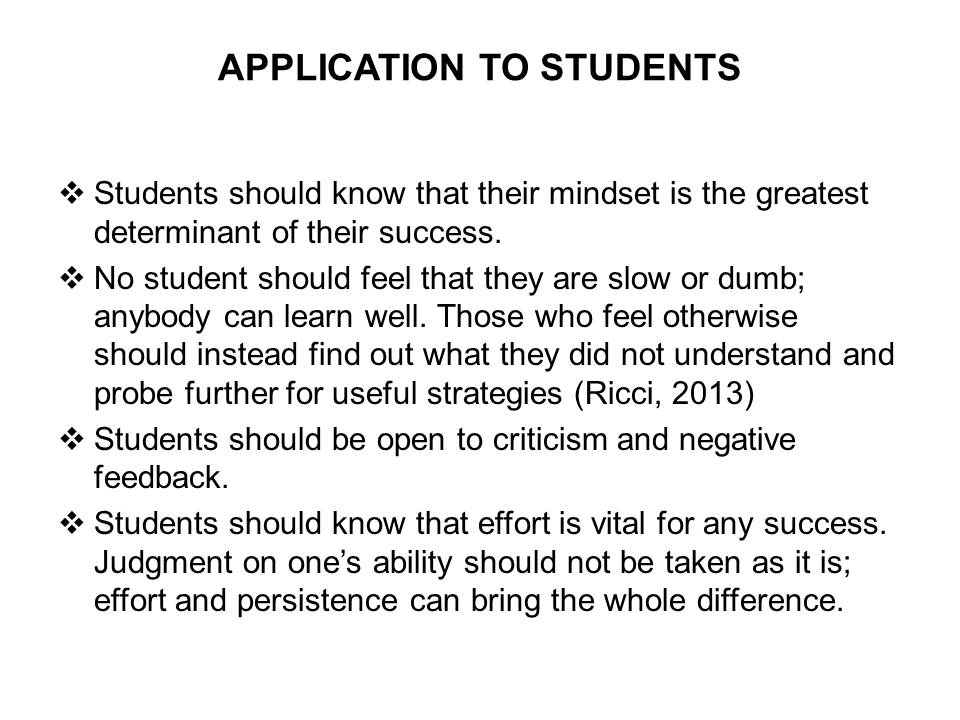
References
Duckworth, A. (2016). Grit: The power of passion and perseverance. London : Vermilion.
Dweck, C. S. (2012). Mindset: How you can fulfill your potential. London: Robinson.
Ricci, M. C. (2013). Mindsets in the classroom: Building a culture of success and student achievement in schools. Texas: Prufrock Press.
Tough, P. (2012). How children succeed: Grit, curiosity, and the hidden power of character. Boston: Houghton Mifflin Harcourt.